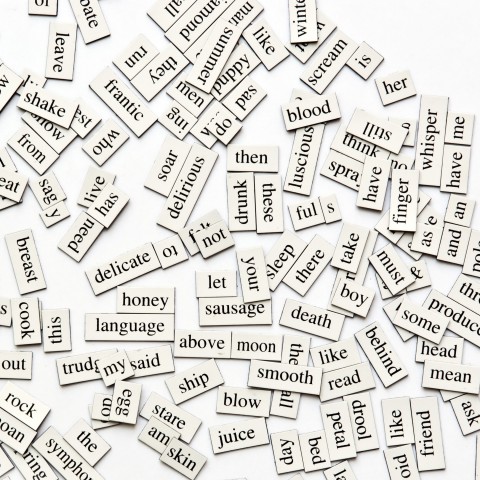
It’s more than expected to make mistakes when learning a new language, particularly when that language is quite different from your mother tongue. Whether in terms of correct pronunciation, the right word for the right situation, or the small differences that can make the difference between an idiomatic phrase and an idiotic one, languages are full of traps that only native speakers can navigate with ease.
With all that in mind, it’s perfectly normal for a language-learner to make the occasional mistake in Hebrew. But we here at HebrewPod101.com are here to help you avoid the worst of them.
Today’s lesson will cover the top ten most common Hebrew mistakes. While there are some mistakes in life that one must make in order to learn from, we like to think that in language we can minimize mistakes. To that end, we’ll look at issues of pronunciation, word choice (vocabulary), grammar, and even spelling. We’ll also include some mistakes that even native speakers have been known to make, leading to further confusion among language-learners.
Together, we’ll see what the common mistakes in learning Hebrew are, why they’re mistakes, and what we can do to avoid making them. Let’s jump right in, shall we?
 Table of Contents
Table of Contents
- Pronunciation Mistakes: Gutturals
- Word Choice Mistakes
- Word Order Mistakes
- Grammar Mistakes
- The Biggest Mistake of All
- Let HebrewPod101 Help You Learn Correct Hebrew and Avoid Mistakes
1. Pronunciation Mistakes: Gutturals

Hebrew seems to be among the more challenging languages for native speakers of a range of languages. English-speakers in particular tend to have difficulty producing some of the sounds that are natural to the Hebrew tongue.
Hebrew, like Arabic or German, is a language that relies heavily on guttural sounds—sounds we produce using the back of the throat—and these can pose a challenge to the uninitiated. Let’s see what these sounds are and how to avoid mispronouncing them.
1 – ח (khet) and כ/ך (khaf)
Let’s start with the good news. In modern Hebrew, the vast majority of native speakers pronounce these two letters identically. (In the past, they were distinguished by how far back in the throat you would pronounce each letter’s sound.)
To make this sound correctly, you can think about the movement you make when you’re trying to clear your throat. The sound is similar to the “ch” in Loch Ness, as pronounced by a native Scot, or to the jota in the Spanish name Juan.
Many non-native Hebrew-speakers take the easy way out on this sound and, rather than producing it correctly, “fudge” it with a soft “H” sound. This not only sounds bad, but it can lead to confusion, as sometimes this substitution can actually mean that we’re saying a totally different word. For example, לך (lakh) is the second person feminine singular form of “to/for you,” whereas לה (lah) is the third person singular form of the same pronoun.
To avoid this mistake in Hebrew, practice these sentences. Focus on distinguishing between the different sounds (ה [heh] vs. ח/כ/ך, khet/khaf/khaf).
- אני הולך להרים מחר.
Ani holekh la-harim makhar.
“I am going to the mountains tomorrow.”
- אני אוכל מהר בהיכל.
Ani okhel maher ba-heykhal.
“I am eating quickly in the auditorium.”
2 – ר (resh)
Technically, this letter is a voiced uvular fricative rather than a guttural. But for our purposes, the important thing to note is that most modern Hebrew-speakers produce the “ר” sound from the back of the throat and top of the palette, rather than by using the tip of the tongue or the teeth.
As this sound is totally different from most English-speakers’ “R” sound, it takes a bit of practice to get it right. The sound is similar to how the “R” sound is produced by many French-speakers. The best way to get it right is to listen to how Israelis say it, and to practice the sound to get it as close as possible.
Here are some tongue-twisters to help:
- רק רגע, מור, אני כבר רושם את מה שאתה אומר.
Rak rega’, Mor, ani kvar roshem et mah she-atah omer.
“Just a moment, Mor, I’m just about to write down what you say.”
- הרוחות רשרשו כשהשתחררתי מחיל האוויר.
Ha-rukhot rishreshu keshe-hishtakhrarti mi-Kheil ha-Avir.
“The winds rustled when I was discharged from the Air Force.”
2. Word Choice Mistakes

Another category of common Hebrew mistakes is that of incorrect word choices. Obviously, this is a huge category, as the opportunities for vocabulary mishaps lie everywhere. But here, we’ll only focus on the top three commonly confused words.
It’s a good idea here to practice each word and to internalize how and where to use it. To this end, feel free to practice with the sample sentences provided below, and avoid these Hebrew word mistakes in the future.
אח -1 (akh) – “brother” / “male nurse” / “fireplace” / “ouch” vs. אך (akh) – “but”
In modern Hebrew pronunciation, the two words above sound identical, but note that each spelling has multiple meanings, so it’s easy to get confused here. The first one, אח (akh), most commonly means “brother,” and, in fact, the “male nurse” definition is merely a derivative of the same (just as in the past, female nurses in English were referred to as “sisters”). It’s also used to spell out the exclamation for pain, basically Hebrew’s version of “ouch.”
On the other hand, אך (akh) with a ך is a conjunction, meaning it links two words or phrases. In this case, it marks a contrast between them.
Note the differences between the examples below:
אח (akh) – “brother” / “fireplace” / “ouch”
- זה אח שלי, ירון.
Zeh akh sheli, Yaron.
“This is my brother, Yaron.”
- יש לך אח גדול, נכון?
Yesh lekha akh gadol, nakhon?
“You have an older brother, don’t you?”
- האח שטיפל בי בבית החולים היה נחמד מאוד.
Ha-akh she-tipel bi be-veyt ha-kholim hayah nekhmad me’od.
“The male nurse who treated me at the hospital was very kind.”
- קר בחוץ! בא נשב מול האח כדי להתחמם.
Kar ba-khutz! Bo neshev mul ha-akh kedey lehitkhamem.
“It’s cold outside! Let’s go sit by the fireplace to warm up.”
- אח! דבורה בדיוק עקצה אותי בגב!
Akh! Devorah bidiyuk aktzah oti ba-gav.
“Ouch! A bee just stung me in the back.”
אך (akh) – “but”
- רצינו לשחות בים אך הגלים היו חזקים מדי.
Ratzinu liskhot ba-yam akh ha-galim hayu khazakim miday.
“We wanted to go swimming in the ocean, but the waves were too strong.”
- אני לא אוהב ארטישוק אך אח שלי מת על זה.
Ani lo ohev artishok akh akh sheli met al zeh.
“I don’t like artichokes, but my brother is crazy about them.”
2- קרה (karah) – “happened” / “occurred” vs. קרא (kara) – “read” vs. קרע (kara’) – “ripped” / “tore”
Here we have three words that, in modern Hebrew pronunciation, sound identical or close to it, but which nevertheless have significantly different meanings. Note that all three are the male singular first person past tense form of a verb. Here are some examples of how their meanings differ:
קרה (karah) – “happened” / “occurred”
- מה קרה? הכל בסדר כאן?
Mah karah? Ha-kol be-seder kan?
“What happened? Is everything okay here?”
- אף פעם לא קרה לי נס, אבל אני עוד מחכה.
Af pa’am lo karah li nes, aval ani od mekhakeh.
“A miracle has never happened to me, but I’m still waiting.”
קרא (kara) – “read”
- אני מקווה שהוא קרא את ההוראות לפני שהוא התחיל לעבוד.
Ani mekavah she-hu kara et ha-hora’ot lifney she-hu hitkhil la’avod.
“I hope he read the instructions before he started working.”
- אבא שלי קרא לי מליון ספרים בילדות שלי.
Abba sheli kara li milyon sefarim ba-yaldut sheli.
“My father read me a million books in my childhood.”
3- צבע (tzeva’) – “color” / “paint” vs. צבא (tzava) – “army” / “military”
This is another pair that’s easy enough to confuse, as they sound almost the same, particularly to the untrained ear. Note that, in addition to the difference in vowels, צבע is stressed on the first syllable (TZEva’), whereas צבא is stressed on the second syllable (tzaVA). Here are some examples to help you practice:
צבע (tzeva’) – “color” / “paint”
- איזה צבע את הכי אוהבת?
Eyzeh tzeva’ at ha-khi ohevet?
“What is your favorite color?”
- הצבע הזה ממש מבליט את העיניים שלך!
Ha-tzeva’ ha-ze mamash mavlit et ha-eynayim shelkha!
“This color really brings out your eyes!”
- אל תיגע בזה. הצבע עוד טרי!
Al tiga’ be-ze. Ha-tzeva’ od tari!
“Don’t touch that. The paint is still wet!”
צבא (tzava) – “army” / “military”
- איפה שירתת בצבא?
Eyfoh shirateta ba-tzava?
“Where did you serve in the army?”
- לישראל יש את הצבא הכי מנוסה בעולם!
Le-Yisrael yesh et ha-tzava hakhi menuseh ba-’olam.
“Israel has the most experienced military in the world.”
- אחרי הצבא אני טס לארגנטינה.
Akharey ha-tzava ani tas le-Argentina.
“After the army, I am flying to Argentina.”
3. Word Order Mistakes

Another area that commonly invites mistakes among non-native speakers is syntax, or word order. Particularly for English-speakers—though not for most Romance language-speakers—it can get tricky to remember to do the reverse of what you’re used to, which is often the case with Hebrew.
Let’s look at the two most common issues Hebrew-learners are likely to face in this regard, namely adjective-noun combinations and possessive nouns.
1- Noun-adjective combinations
It’s important to remember that in Hebrew, adjectives always come after the nouns they describe. This is the exact opposite of what we’re used to in English, so it’s best to give this language feature plenty of practice to avoid making this kind of Hebrew mistake. Here are some examples of mistakes, followed by the correct forms.
MISTAKE
הגדול הכלב הוא פיטבול.
CORRECTION
הכלב הגדול הוא פיטבול.
Ha-kelev ha-gadol hu pitbul.
“The big dog is a pit bull.”
MISTAKE
זה טוב חבר שלי מאוסטרליה.
CORRECTION
זה חבר טוב שלי מאוסטרליה.
Zeh khaver tov sheli me-Ostraliyah.
“This is my good friend from Australia.”
MISTAKE
בא לך קר קפה?
CORRECTION
בא לך קפה קר?
Ba lakh kafeh kar?
“Would you like an iced coffee?”
2- Possessive adjectives
In Hebrew, the correct syntax for expressing possessives is for the noun to precede the possessive adjective. While this form does exist in English—think of “child of mine”—it’s definitely not the usual order we use, which is the other way around (think “my child”). Therefore, it’s worth practicing this one as well. Let’s see some examples.
MISTAKE
הנה, זה שלי האוטו.
CORRECTION
הנה, זה האוטו שלי.
Hineh, zeh ha-oto sheli.
“Here is my car.”
MISTAKE
השלנו מורה יודע הכל על הכל.
CORRECTION
המורה שלנו יודע הכל על הכל.
Ha-moreh shelanu yode’a ha-kol ‘al ha-kol.
“Our teacher knows everything about everything.”
MISTAKE
השלך מפתחות תלויות ליד הכניסה.
CORRECTION
המפתחות שלך תלויות ליד הכניסה.
Ha-maftekhot shelakh tluyot leyad ha-knisah.
“Your keys are hanging by the entrance.”
4. Grammar Mistakes

Let’s take a look at a couple of common grammar mistakes. These mistakes are, in fact, not limited to Hebrew students alone. These common mistakes in Hebrew are even made among native Hebrew-speakers, so why not master them and show off to your Israeli friends? After all, there’s nothing more authentically Israeli than showing someone you know more than he or she does!
1- נִרְאֶה (nir’eh) – “seems” / “looks” vs. נִרְאָה (nir’ah) – “seemed” / “looked”
This one is a rather straightforward distinction between the past form and present form of the same verb. נִרְאֶה (nir’eh) is the present form of the verb להיראות (leheyra’ot), meaning “to seem” or “to look,” whereas נִרְאָה is the past tense. Israelis, as well as students, are wont to use the past form where they should use the present one. Let’s see some examples.
MISTAKE
בא לי לאכול כבר! האוכל נִרְאָה ממש טעים.
CORRECTION
בא לי לאכול כבר! האוכל נִרְאֶה ממש טעים.
Ba li le’ekhol kvar! Ha-okhel nir’eh mamash ta’im.
“I feel like eating already! The food looks truly delicious.”
MISTAKE
הסרט הזה נִרְאָה לי משעמם.
CORRECTION
הסרט הזה נִרְאֶה לי משעמם.
Ha-seret ha-zeh nir’eh li mesha’amem.
“That movie looks boring to me.”
2- Using the wrong gender adjective/number/verb/etc. for irregular nouns
Another common grammar issue arises with irregular nouns, when the plural form doesn’t correspond to the grammatical gender of the singular noun. For example, though the word חלון (khalon), meaning “window,” is masculine, it uses the feminine suffix -ות (-ot) instead of the masculine suffix -ים (-im) to form the plural. Thus, it’s easy to get confused and use a feminine adjective if you’re referring to various windows. Watch out for this! Here are some examples, along with the correct forms:
MISTAKE
מי יושב מאחורי החלונות הגבוהות?
CORRECTION
מי יושב מאחורי החלונות הגבוהים?
Mi yoshev me’akhorey ha-khalonot ha-gevohim?
“Who sits behind the high windows?”
MISTAKE
קנינו שלוש ארונות ספרים חדשות לסלון.
CORRECTION
קנינו שלושה ארונות ספרים חדשים לסלון.
Kaninu shloshah aronot sfarim khadashim la-salon.
“We bought three new bookcases for the living room.”
MISTAKE
הנשים האלה שרים יפה מאוד.
CORRECTION
הנשים האלה שרות יפה מאוד.
Ha-nashim ha-eleh sharot yafeh me’od.
“Those women sing very nicely.”
5. The Biggest Mistake of All

In this teacher’s opinion, the biggest mistake any of us can make when trying to speak a new language is to rely on word-for-word translation. The perils in doing so can be great as, very often, one language simply will not line up with the other one on a word-by-word basis. There’s not really any one surefire way to avoid these kinds of mistakes in Hebrew, apart from adopting an attitude of trying to really think in Hebrew. In addition, be wary of dictionaries, and make sure you’ve found the right definition of the word you wanted to translate.
These tips will help you focus less on how the language you’re learning differs from your native tongue, and allow you to absorb the way it works in a more natural, organic way. Just remember that you’ll make mistakes, and the best thing to do when that happens is laugh at yourself and learn from your errors. And, as always, there’s no substitute for practice.
Now, take a look at some of the ways word-to-word translation can fail us. Check the following sentences and see if you can find the mistake (keeping in mind that these are the results of too literal a translation from Hebrew to English). Then, check your guess using the key provided below.
- סליחה על האיחור. התגעגעתי לאוטובוס.
Slikha ‘al ha-ikhur. Hitga’aga’ti la-otobus.
- לא אוכל לבוא לשיעור. אני מרגיש מתחת למזג האוויר.
Lo ukhal lavo la-shi’ur. Ani margish mitakhat le-mezeg ha-avir.
- מאז שאני בן 13, אני מנגן בחביות.
Me-az she-ani ben shlosh-’esreh, ani menagen be-khaviyot.
- אם אין לך חבר, אני מזמין אותך לצאת החוצה מתישהו.
Im eyn lakh khaver, ani mazmin otakh latzet ha-khutzah matayshehu.
- אין לי רמז מה קורה כאן.
Eyn li remez mah koreh kan.
CORRECTIONS WITH EXPLANATIONS
- סליחה על האיחור. פספסתי את האוטובוס.
Slikha ‘al ha-ikhur. Fisfasti et ha-otobus.
“Sorry I’m late. I missed the bus.”
- The word התגעגעתי (hitga’aga’ti) means “I missed” in the sense of longing for something that is absent, rather than in the sense of not making it to something on time.
- לא אוכל לבוא לשיעור. אני מרגיש חולה.
Lo ukhal lavo la-shi’ur. Ani margish kholeh.
“I won’t be able to make it to class. I am feeling sick.”
- The idiomatic phrase “under the weather” has no direct equivalent in Hebrew, so we should just say that we’re sick or unwell.
- מאז שאני בן 13, אני מנגן בתופים.
Me-az she-ani ben shlosh-’esreh, ani menagen be-tupim.
“I’ve been playing drums since I was thirteen.”
- The word we want here is תופים (tupim), meaning “drums” as in the musical instrument, rather than חביות (khaviyot), drums as in the large cylindrical recipients like those used for storing oil.
- אם אין לך חבר, אני מזמין אותך לצאת מתישהו.
Im eyn lakh khaver, ani mazmin otakh latzet matayshehu.
“If you don’t have a friend, I’d like to ask you out sometime.”
- In this case, we probably want to ask a girl out on a date, or לצאת (latzet), and not to go outdoors, or לצאת החוצה (latzet ha-khutzah). This is a good example of a too-literal translation.
- אין לי מושג מה קורה כאן.
Eyn li musag mah koreh kan.
“I have no idea what’s going on here.”
- The correct word here is מושג (musag), meaning “notion.” Using the word רמז (remez), or “clue,” sounds entirely non-idiomatic in Hebrew, even though this is the word used in the English phrase.
6. Let HebrewPod101 Help You Learn Correct Hebrew and Avoid Mistakes

We hope you’ve enjoyed today’s lesson on the top ten Hebrew mistakes. As always, we welcome you to get in touch with us and let us know if there’s anything we covered that you’re unsure of, or anything we didn’t cover that you would like us to add information on.
Language-learning is not an easy undertaking, but with the right folks to guide you, it can not only be painless but even fun. Our team of language experts at HebrewPod101.com take pride in offering you enjoyable, engaging, and useful learning materials so you can learn Hebrew at your own pace and according to your own personal needs.
Until next time, Shalom!










